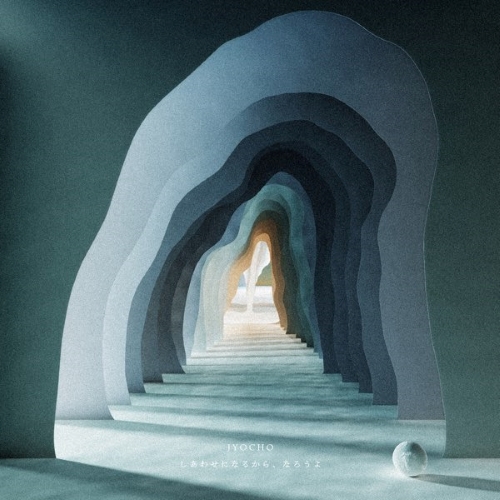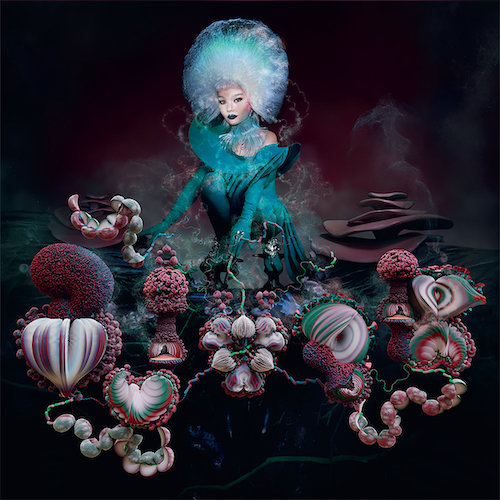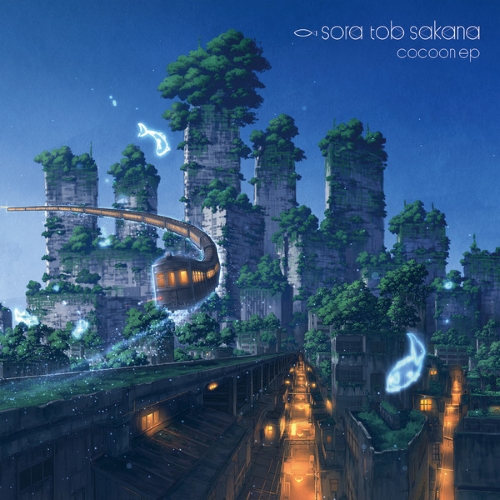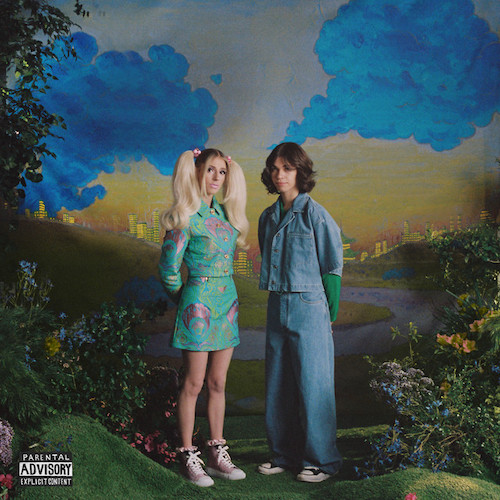

Let's Promise to Be Happy
Jyocho
A dear friend recently pointed me towards this mini-album and it's pretty much all I've been listening to for the past two days. Jyocho is yet another insanely talented band from Japan (aren't they all) that contribute to the expanding world of quaint, easy, breezy, intricate math rock. The guitar playing often takes center stage as Daijiro Nakagawa dances nimbly around these two-handed tapping or creative finger-picked patterns. The vocals as well are sweeping and graceful, rarely sticking to any melodic pattern and instead just letting the melodies flow where ever they may. I'm starting to get the sense that this is a very non-Western thing as I often hear this approach to pop vocals in a lot of J-Pop as well as maybe my favourite example being Iceland's Björk. The addition of the flute also gives the music a kind of coastal, seafaring adventure quality that brings vivid images to my mind. And lastly, the bass and drums, especially the former, are impeccably tight. I would have guessed the bass was sequenced given the very digital tone and tight rhythms on tracks like Turn Into the Blue, but no, bassist sindee is just that good I guess.
The sounds are there, the playing is there, there is not one single offensive moment on this batch of songs. However, I'm not completely sold on the songwriting itself. Music in this brand of math rock, as flashy and intricate as it can be, does tend to be a little one-dimensional. Without a sort of counter-balance to the overly cheerful and life-affirming mood it is trying to construct, or some sort of interesting hook that can make a song memorable, a lot of this stuff fades into the background. I find myself being a very passive listener, not really being challenged which is how I tend to prefer my math rock personally.
In my opinion, the band breaks out of this in spectacular fashion on the track The End of Sorrow. The main guitar line is this simple ascending and descending melancholic melody, but throughout the track it is played slightly differently. Initially, the phrase is played in this choppy fashion, adding pauses in between a few notes to create this interesting sense of time. In the verse, it is played without those pauses to create brain bandwidth for the vocals. The following instrumental section returns to that same opening meter, but the pauses are now filled with these wonderful guitar flourishes. We already have three variations of essentially the same riff, and this shows that it doesn't take a huge amount of creativity to subvert expectations. The second verse switches things up again slightly, this time giving the drums and the bass time to shine. There's no real groove or beat during this section, instead, the rhythm instruments just riff at various points. sindee has a little slap bass section that is absolutely crazy, and still locks in perfectly with the drums. If that weren't enough, he also throws in these glitched stuttering effects that I am a total sucker for. The band even throws in a key change towards the end, flipping to a more brighter, happier tone complete with vocals in Netako Nekota's upper range. It then flips back to the main guitar line to finish full-circle, but not without one more frantic instrumental burst. That's perhaps the most I've talked about one song on here, so believe me when I say it is absolute perfection.
Sadly, not every song is as finely crafted and packed with memorable details as that one, but make no mistake, this is a very pleasant, feel good listening experience. Everyone in this band is so insanely talented, so if you just want to hear really good musicianship and chemistry, than look no further. Also, if you're a fan of this light, pacifying branch of math rock, you'll want to check this out too.
7.0
Standouts: The End of Sorrow
Math Rock, Indie Rock (2022) No Big Deal. Reviewed February 21st, 2022






